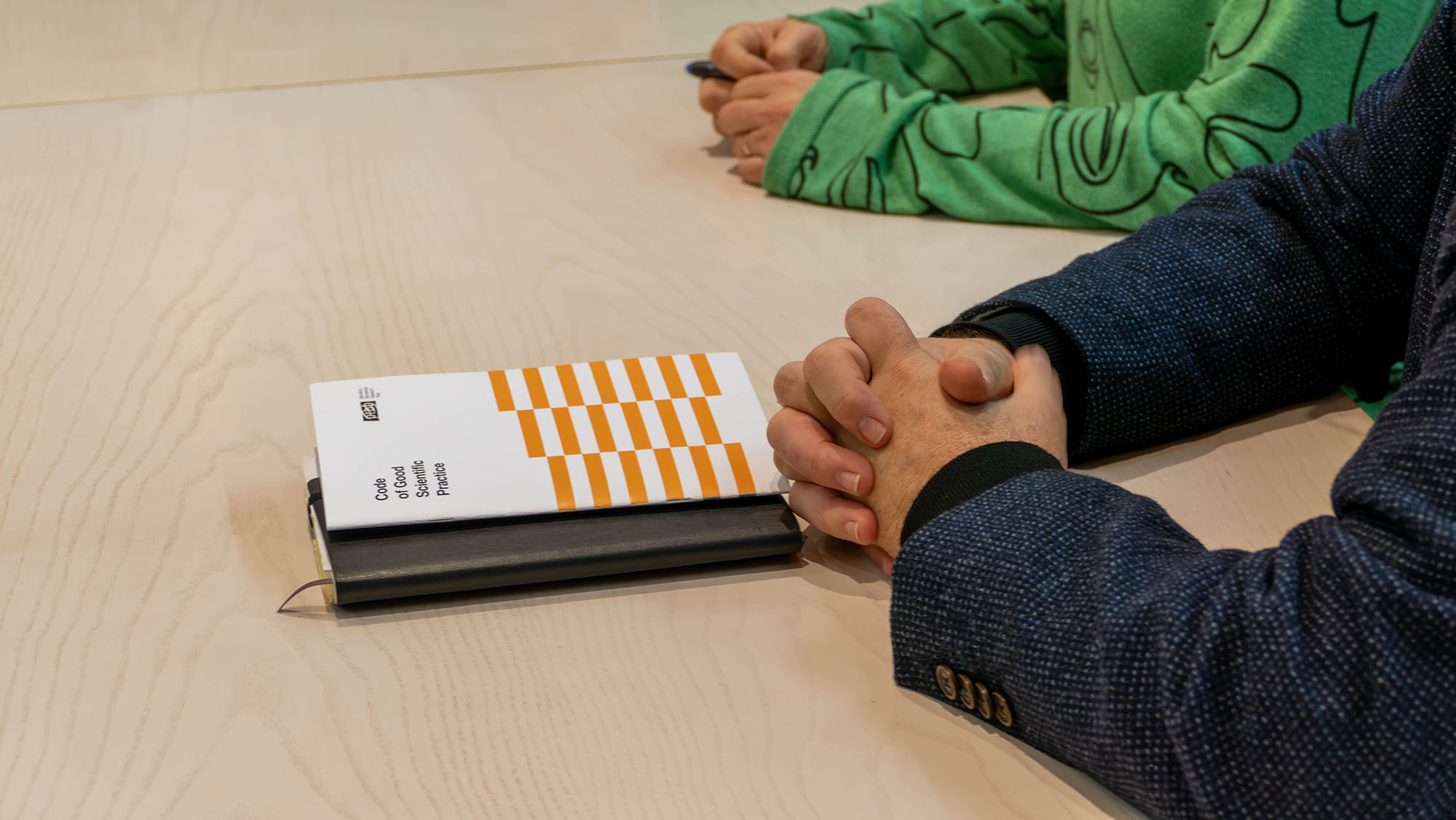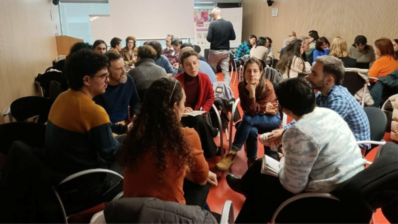The PRBB’s Code of Good Scientific Practice was a pioneer in its field. Created in 2000 and signed by all the Park’s centres, the Code has been updated several times over the years to adapt to new developments in the scientific world, although “the majority of the text has survived the passage of time”, according to its creator and Barcelona Biomedical Research Park (PRBB) director, Jordi Camí.
The 6th edition (November 2023) has now been published and was ratified by all the directors of the PRBB centres on 4 December at a symbolic signing of one of the copies.

This latest update, which members of the PRBB Good Scientific Practice Group have been working on for the past year, also incorporates the latest changes to the new European Code of Conduct for Research, which was published last summer. This is the Europe-wide reference document for good practice in research – indeed, adherence to the Code is one of the requirements for receiving EU funding. Representatives of the PRBB GSP group in the European Research Integrity Officers Network (ERION) have been involved in the revision of the European Code, which has facilitated the integration of the new updates into the PRBB Code.
Adapted to the new times
One of the most significant changes in the updated PRBB Code – as well as in the new European Code – is the recognition of the responsibility of institutions – in addition to the researchers themselves – in maintaining scientific integrity, through support, resources, training and the creation of an environment conducive to good practice. Hence the importance of the signature of the Code by the management of all institutions as a sign of their commitment.
A related change is the recognition of the important role that research culture plays in maintaining scientific integrity. With regard to research culture, it emphasises the importance of mutual respect, equality, diversity and inclusion of all staff and, of course, the all-important systems for evaluating and rewarding researchers (the so-called research assessment), so that this is based not only on quantitative parameters, such as the impact factor of the journal, but also on qualitative ones.
In addition, the new Code introduces topics that have recently gained in importance, such as citizen science, transparency and data sharing (open science), new forms of communication such as preprints or the use of social networks, or even Artificial Intelligence.
From January 2024, the PRBB Good Scientific Practice Group will begin internal dissemination of the new Code and the updated dedicated section of the PRBB website and continuing to conduct events to foster dialogue and raise awareness of integrity and good scientific practice in the Park community.







